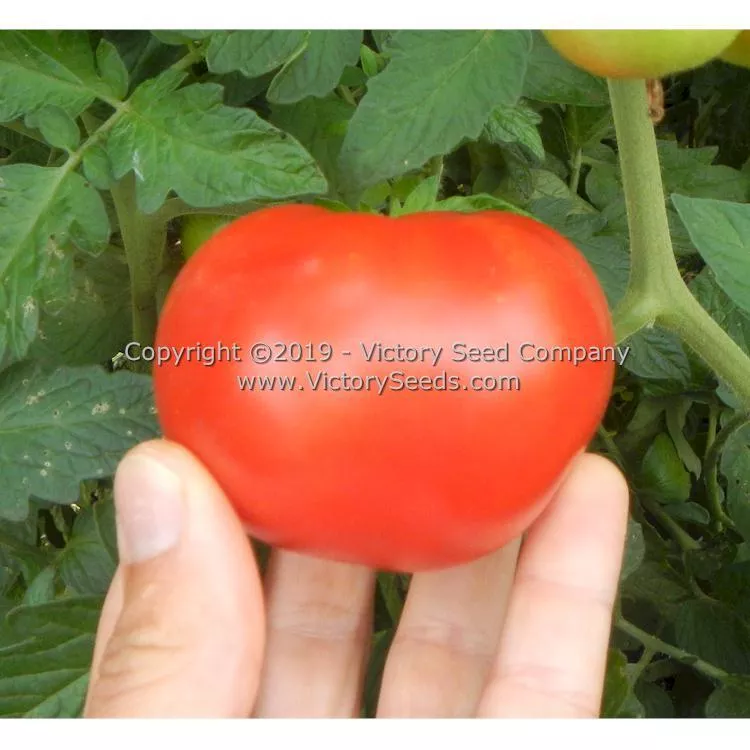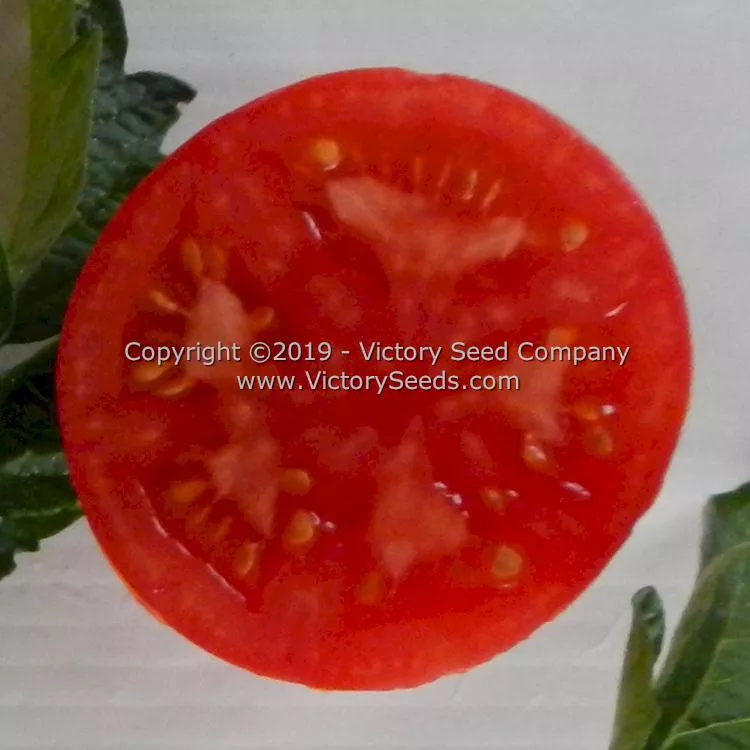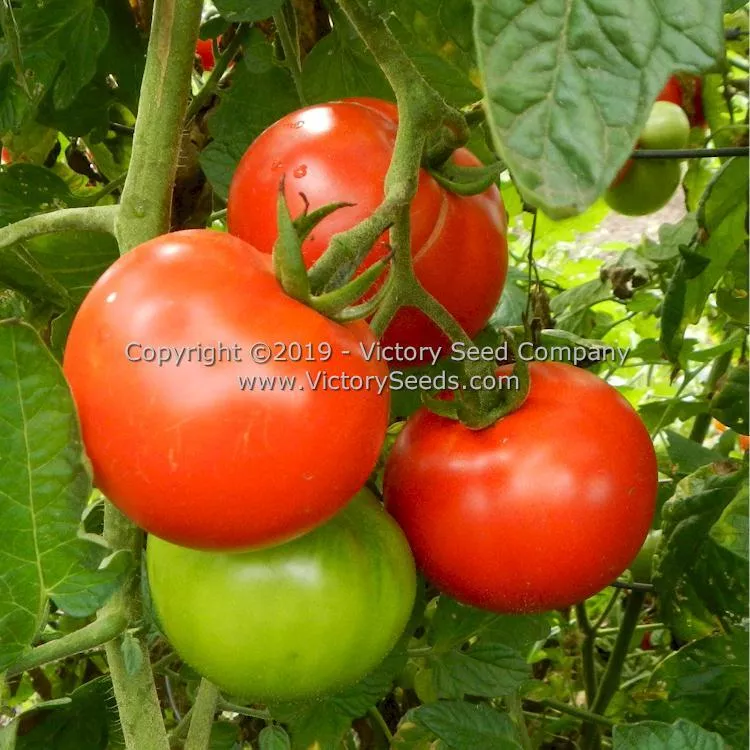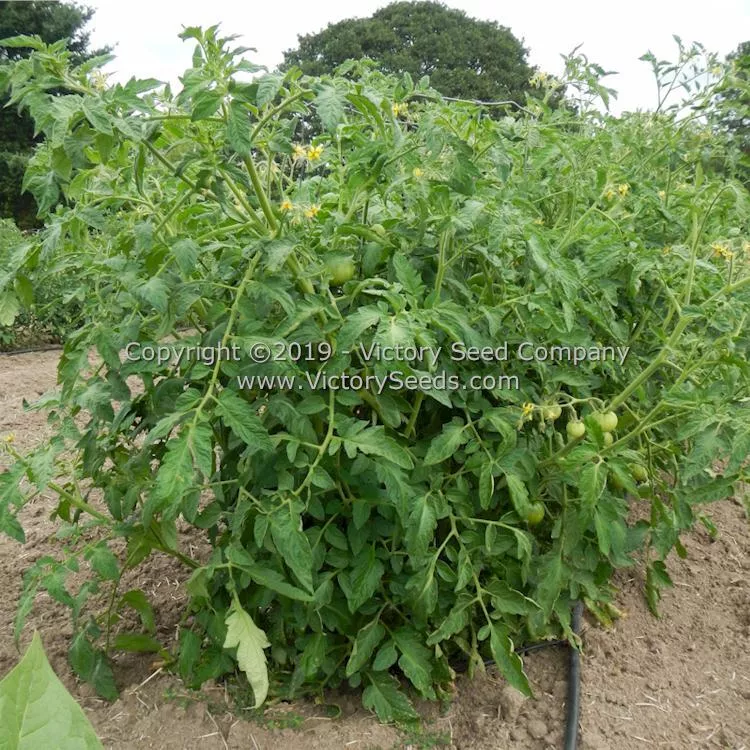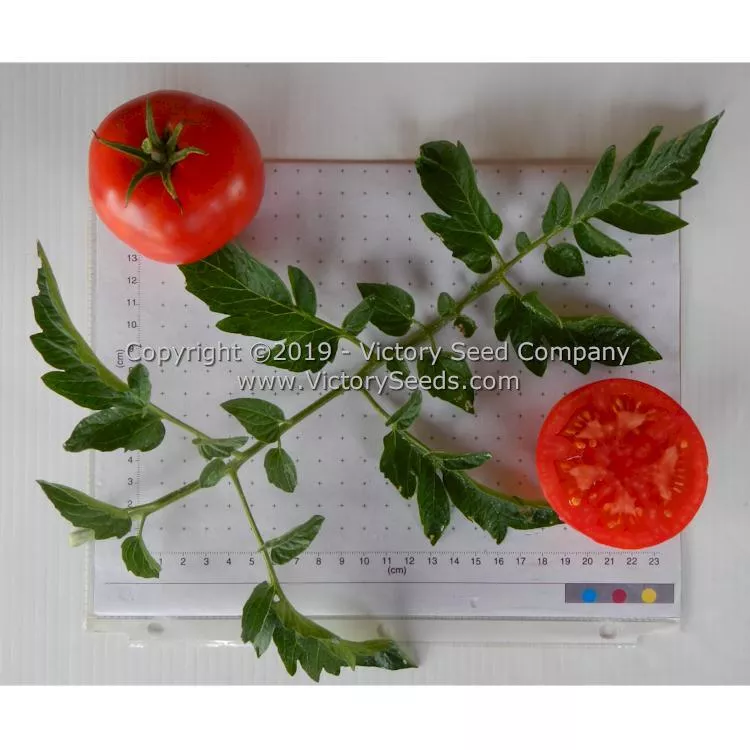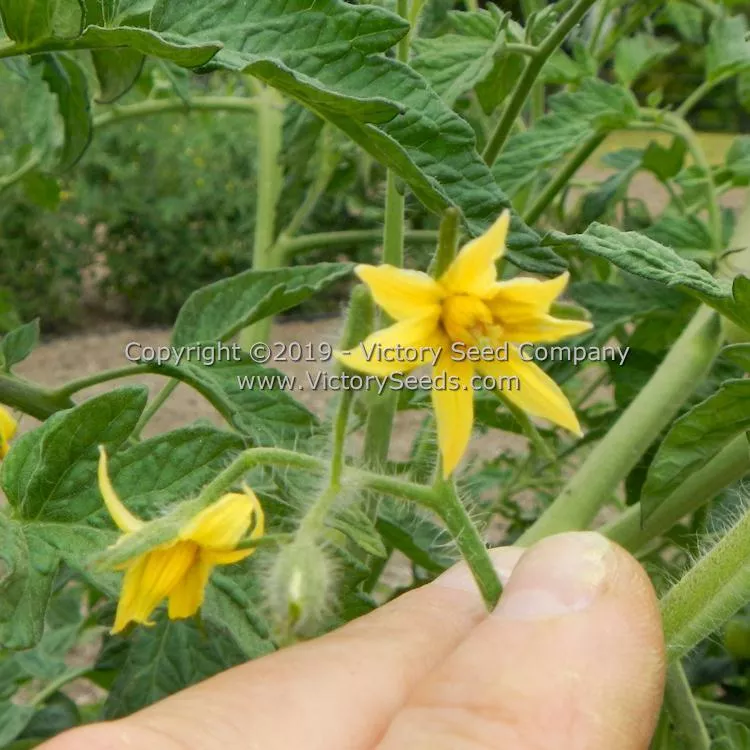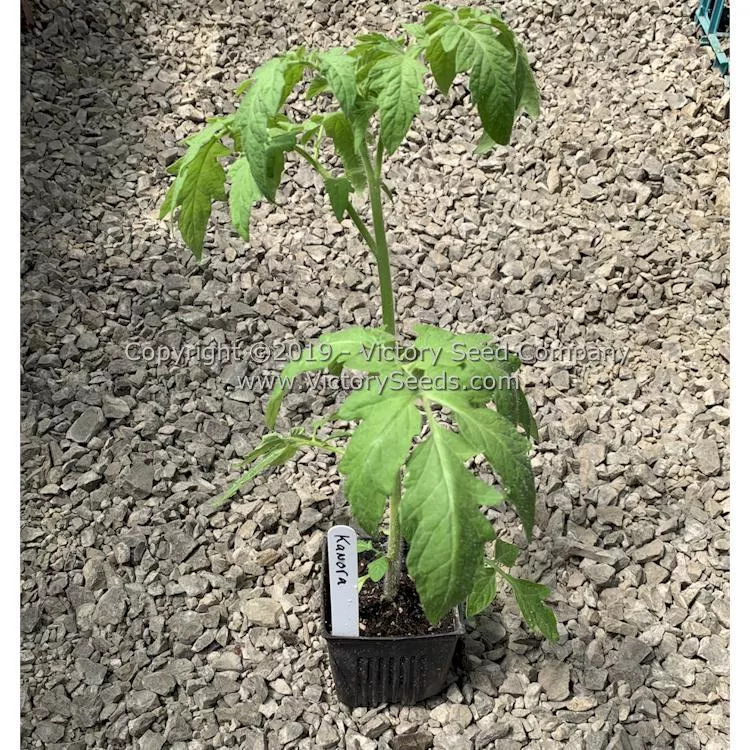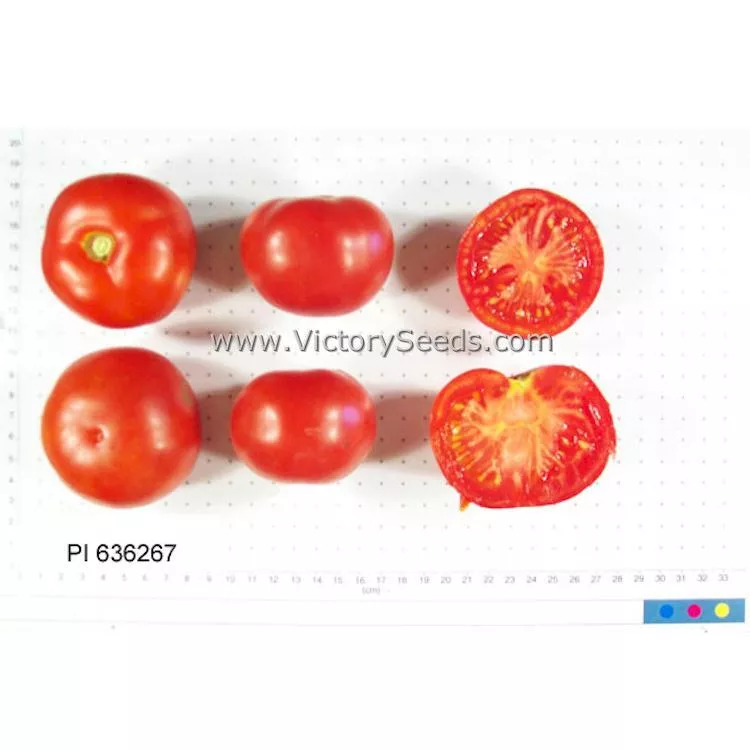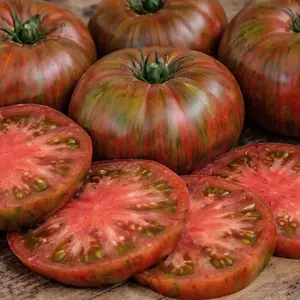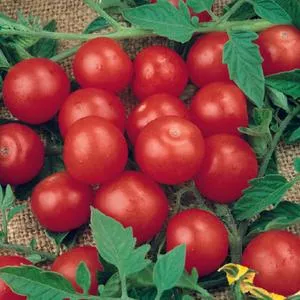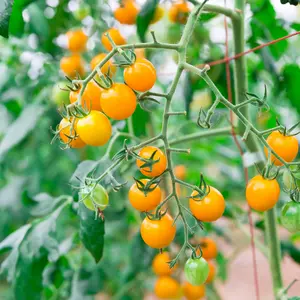







Kanora Tomato
Solanum lycopersicum
Price: $3.45
SKU: 3404871VERY IMPORTANT NOTE: This variety will be available again early next January. Please signup below to be notified when it becomes available. Click here to learn more about our seasonal products.
76 days, indeterminate - The regular leaf plants of 'Kanora' are healthy, vigorous and tend to be well loaded with red colored, four to six ounce, slightly flattened globe shaped tomatoes. The heavy foliage helps to prevent sun-scald and cracking. It was developed for the tomato industry and have thick walls and firm flesh making it an excellent variety for home gardeners for canning, freezing and processing. That said, the fruit are also well suited for fresh eating. They are juicy, offer a rich, mildly tangy flavor with a slightly sweet taste that lingers on the palate; a classic red tomato flavor. Kanora is also a nice choice for market growers as it is also a good shipper.
'Kanora' was bred at the Kansas State Agricultural Experiment Station as a wilt-resistant, production tomato variety, and introduced through the Barteldes Seed Comany of Lawrence, Kansas in 1927. According to the Kansas AES evaluation and descriptive documentation, 'Kanora' was developed as a cross between 'John Baer' and 'Norton'. They went on to describe it as follows:
'Kanora' was bred at the Kansas State Agricultural Experiment Station as a wilt-resistant, production tomato variety, and introduced through the Barteldes Seed Comany of Lawrence, Kansas in 1927. According to the Kansas AES evaluation and descriptive documentation, 'Kanora' was developed as a cross between 'John Baer' and 'Norton'. They went on to describe it as follows:
"Selections were made from the original cross by Mr. O. W. Scott of Cherryvale. Its desirable characteristics were fixed, through careful selection, from year to year. It exhibits the fruit qualities of the 'John Baer' tomato, medium to large, deep red and very productive. It has proved very resistant to wilt (Fusarium lycopersici), but no more resistant than its resistant parent, 'Norton'. In early tests, 'Kanora' out-yielded the 'Norton' tomato in 1923, 1924, and 1925, and the fruit was smaller and more uniform, making it more desirable."[1]
In their 1926 seed catalog, Barteldes announced the tomato by writing, "The Kansas State Agricultural College has developed a new blight-resisting Tomato, 'The Kanora.' They have given us the exclusive sale of this seed. We will offer it for 1927."[3] Our seed stock originated from USDA Accession Number PI 636267. It entered the USDA's collection on October 1, 1963.
Color: Red
Harvest Timing: Main Crop / Mid-Season
Genetic Classification: Open Pollinated
Harvest Timing: Main Crop / Mid-Season
Genetic Classification: Open Pollinated
Sow seeds indoors (do not direct sow into the garden), using sterile seed starting mix, 6 to 8 weeks before your last expected frost date. Plant 1/4" deep, water lightly but keep moist until emergence.
Full light and cooler temps (60° to 70°) will help to prevent the seedlings from becoming too leggy. If plants become rootbound before you can safely set them into the ground, transplant them into larger pots.
Harden off plants before planting outside. Young plants are very susceptible to frost and sunburn damage. Avoid too much nitrogen. Water evenly but not in excess.
Click here to view our full tomato growing guide.
Full light and cooler temps (60° to 70°) will help to prevent the seedlings from becoming too leggy. If plants become rootbound before you can safely set them into the ground, transplant them into larger pots.
Harden off plants before planting outside. Young plants are very susceptible to frost and sunburn damage. Avoid too much nitrogen. Water evenly but not in excess.
Click here to view our full tomato growing guide.
Informational References:
- "Tomato Wilt Investigations," Kansas State AES, Technical Bulletin 20, February, 1926.
- "The Pedigree of Varieties of Lycopersicon Esculentum Mill.," G. A. Kemp, Canada Department of Agriculture, Lethbridge, Alberta, April 20, 1960.
- "Barteldes Seeds," The Barteldes Seed Comany, Lawrence, Kansas, 1926.
- "Barteldes Seeds," The Barteldes Seed Comany, Lawrence, Kansas, 1927.
Customer Reviews:
Do you have experience with this one? 📝 📣 Write a review!
No reviews have been posted yet.

